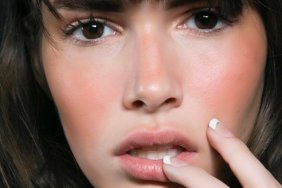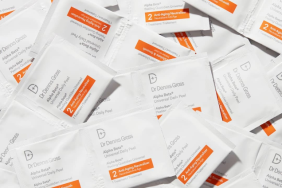Anyone who has suffered from acne knows how emotionally debilitating it can be. Worse yet, as most of us have come to realize, it’s not a problem that goes away after our teenage years. Overall, women suffer more and for longer periods and makeup tends to do little besides aggravate the situation. If you’ve exhausted every cream, lotion, potion and pill, you may be considering cortisone injections, often touted as the quickest way to make cystic acne disappear. While the injections have proven to be a miracle cure for many, they have limitations. To find out exactly what they are, we turned to two of the country’s leading dermatologists; Dr. Neal Schultz, host of DermTV and creator of BeautyRx by Dr. Schultz, and Dr. Dennis Gross, founder of 900 5th Dermatology and creator of Dr. Dennis Gross Skincare.
How the Injections Work
“Cortisone is a class of medication that reduces inflammation of acne. Inflammation is responsible for redness, swelling and pain associated with acne cysts. Cortisone shots improve these symptoms. It’s not an antibiotic and therefore does not kill bacteria. All other medications prescribed for acne should be continued — this is not the only treatment a patient should practice to eliminate and clear acne,” explains Gross.
It Won’t Work on Regular Pimples
“The purpose of the cortisone is to shrink the swollen wall of the cyst, but it has no effect on the pus. If a cyst with pus is injected, the pus dilutes the cortisone and it doesn’t work,” explains Schultz. The injections are meant for those with acne cysts, typically a quarter of an inch or larger in size. These injections are for the most severe cystic acne only and can be used on the face, chest and back.
You Will See Results Fast
“Cortisone injections are the quickest way to make acne disappear. Acne cysts literally shrink within four to eight hours after injection and continue to improve over the next several days. Pain and swelling of cyst will improve, too. A cyst that was swollen, tender and red within 24 hours will be flattened, less red and therefore less noticeable. Treatment itself does not make the acne look worse before it gets better, unlike many other treatments. This treatment is about prevention as well and is very useful to prevent scarring — acne cysts are those prone to skin scars,” says Gross.
Cortisone Is a Steroid
“While cortisone is a steroid, you won’t see the side effects you typically hear about when taking oral steroids,” says Gross. “The amount injected is very small and does not get absorbed into the bloodstream, but rather stays in the skin. Cortisone injections for acne will not cause high blood pressure, diabetes or bloating, which are common concerns for those taking oral steroids.”
Side Effects
“Sometimes after the cortisone fixes the cyst, you can be left with a depression in your skin, but both the cortisone injections and untreated cysts can cause depressions. The depression from cortisone tends to have a curved, gently sloping border and almost always resolves spontaneously in about six months. The depression from a persistent untreated cyst tends to be more angular in shape and contour and is permanent,” explains Schultz.
Pain
Cortisone injections are minimally painful and very tolerable, says Gross. “The injection uses a micro fine needle and each shot takes only one second to perform. There is no bleeding or bruising following the treatment. If a cyst is painful going into the derm’s office, this is the fastest way to bring swelling down and alleviate this symptom within an hour of injection.”
[ Next: Face Mapping Your Acne: What Your Breakouts May Be Telling You ]







